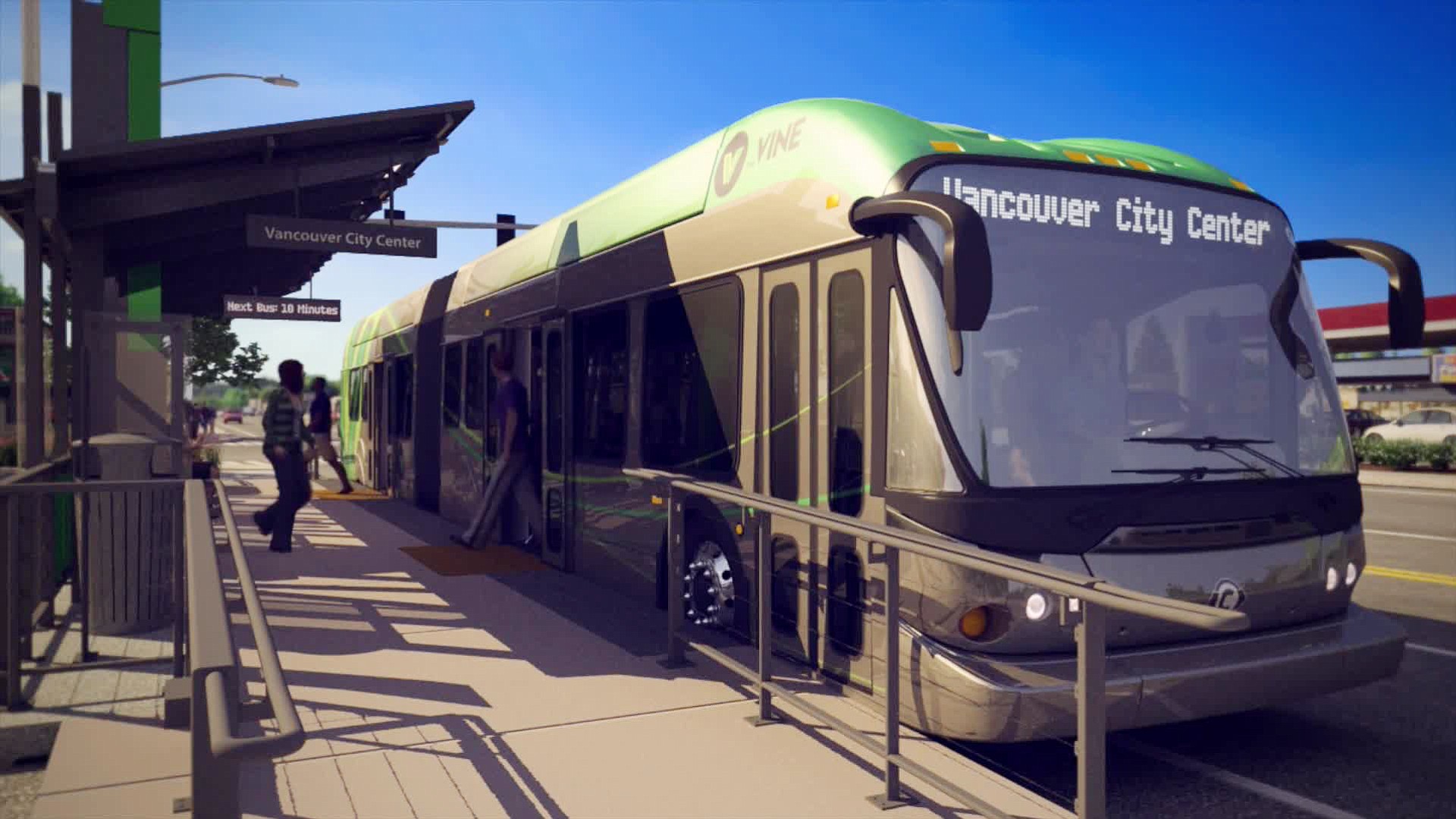C-Tran has asked for the full dismissal of a lawsuit challenging its planned bus rapid transit system in Vancouver.
The lawsuit, filed by 19 plaintiffs in Clark County Superior Court in November, argues that C-Tran is unauthorized to receive federal funding for BRT without first receiving voter approval. In 2012, voters soundly rejected a sales tax hike that would have helped pay for the system, plus operate a light-rail extension planned as part of the now-defunct Columbia River Crossing project.
The plaintiffs argue that C-Tran is unauthorized to spend sales tax revenue on BRT under RCW 81.104, the state’s high-capacity transit law. The lawsuit also argues that C-Tran’s BRT project is inconsistent with the transit agency’s long-term plans.
In its motion for dismissal filed last week, the transit agency argues that its BRT system, known as “The Vine,” does not fit the definition of high-capacity transit under state law because it will operate mainly in mixed traffic, not an exclusive right of way. As such, the project doesn’t require a public vote, according to C-Tran.
In 2012, however, C-Tran officials repeatedly described BRT as a high-capacity transit effort in the run-up to that year’s sales tax vote. That measure sought funding for the project explicitly under RCW 81.104.
After the measure failed, C-Tran later decided to use its own reserve funds to pay for the local share of the project. In 2013, the Washington Attorney General said in a formal opinion that transit agencies such as C-Tran aren’t required to seek voter approval if they finance a high-capacity transit project in a way other than those spelled out in the state law. C-Tran cited the opinion in its court motion filed last week.
C-Tran argued that it is within its legal authority in pursuing BRT. The agency also argued that its BRT project “preserves and maintains service,” making it proper to use revenues from sales tax increases approved by voters in 2005 and 2011 — a claim the lawsuit challenges.
The case is scheduled to go before a Clark County judge in July, according to an email this week from C-Tran Executive Director Jeff Hamm to La Center Mayor Jim Irish, C-Tran’s board chair, and others.
C-Tran declined further comment on the lawsuit.
Meanwhile, the $53 million project continues to move forward. C-Tran expects to begin construction on a maintenance facility upgrade tied to the project in August, said Scott Patterson, planning and development director. Work on the corridor should begin soon after that, he said.
The Vine will run between the Westfield Vancouver mall and downtown, primarily along the city’s Fourth Plain corridor. The system uses 60-foot articulated buses, raised boarding platforms and other features to move passengers more efficiently and reliably. The Vine will replace C-Tran’s existing No. 4 and No. 44 routes on Fourth Plain, according to the agency.
C-Tran expects The Vine to be operational in late 2016.




